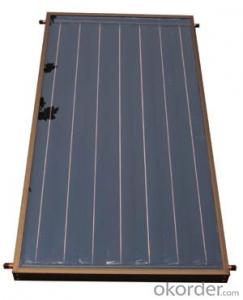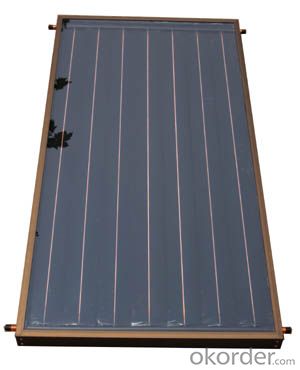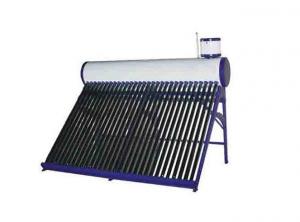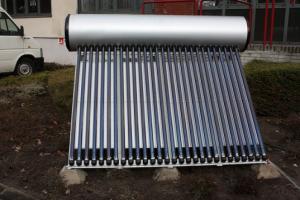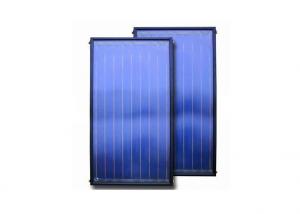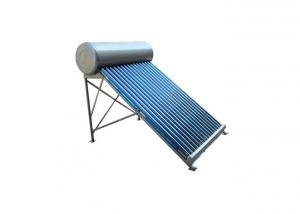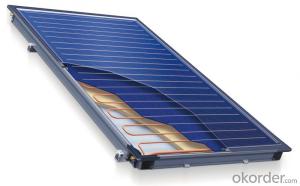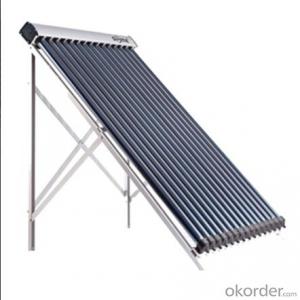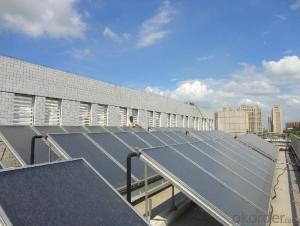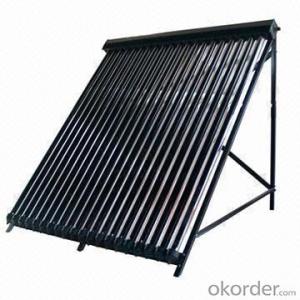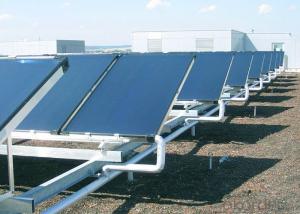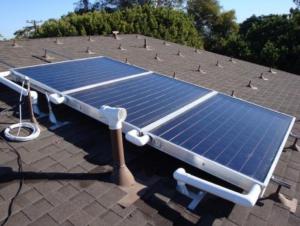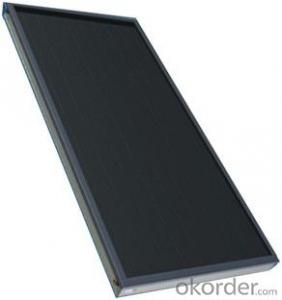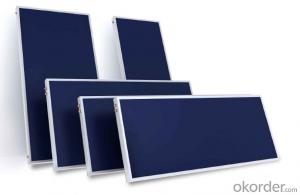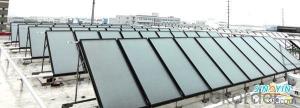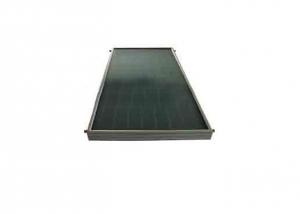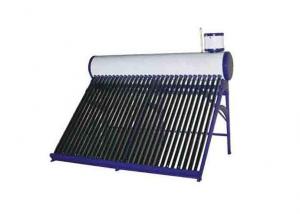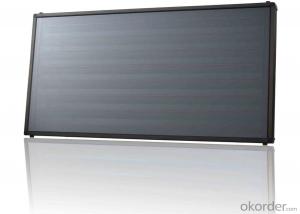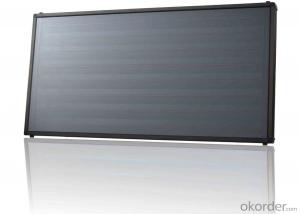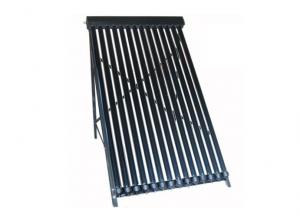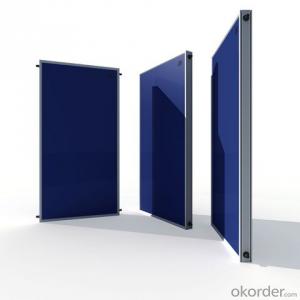Viessmann Solar Collectors - Film Flat Plate Solar Thermal Collector Bluetec Absorber Plate
- Loading Port:
- Shanghai
- Payment Terms:
- TT OR LC
- Min Order Qty:
- 500 pc
- Supply Capability:
- 10000 pc/month
OKorder Service Pledge
Quality Product, Order Online Tracking, Timely Delivery
OKorder Financial Service
Credit Rating, Credit Services, Credit Purchasing
You Might Also Like
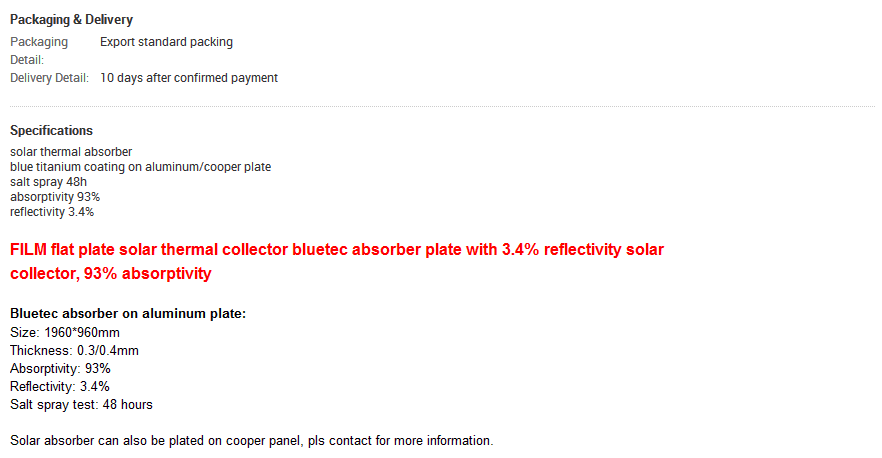
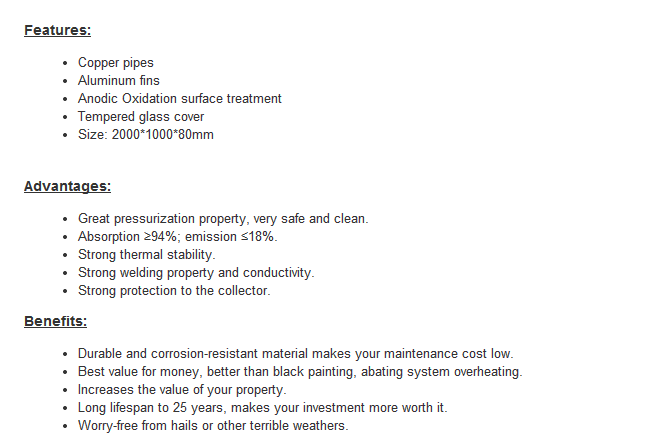
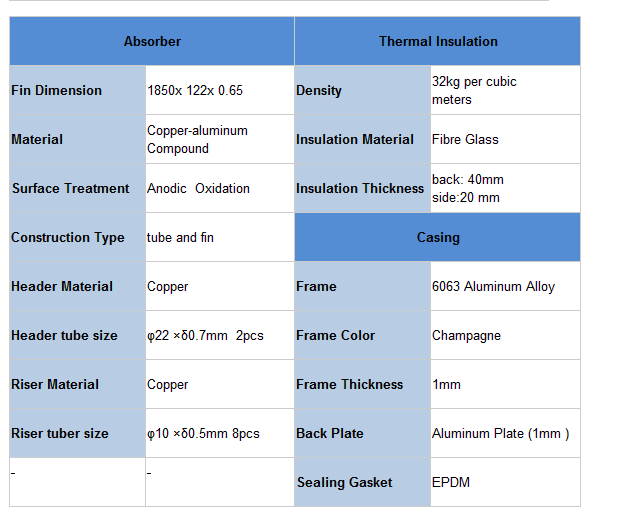
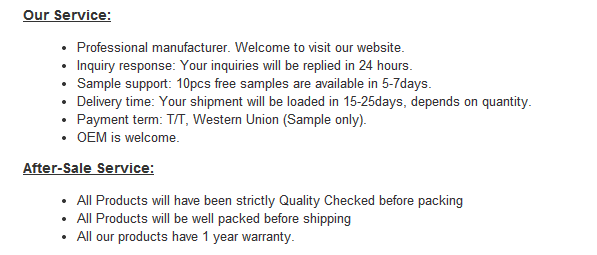
- Q: How can solar collector system prevent wind?
- should be added appropriate protective measures. Solar hot water engineering system installed in the outdoor part should be able to withstand not less than 10 wind load; if the local history of the maximum wind
- Q: Can solar collectors be used in water treatment plants?
- Yes, solar collectors can be used in water treatment plants. They can be utilized to provide renewable energy for various processes such as powering pumps, filters, and disinfection systems. Solar thermal collectors can also be used to heat water for sterilization and other treatment methods. These applications help reduce reliance on fossil fuels and contribute to a more sustainable and environmentally friendly water treatment process.
- Q: Are solar collectors safe?
- Yes, solar collectors are safe. They do not produce any emissions or pollutants, and the technology has been used for decades with a proven safety record. However, it is important to ensure proper installation and maintenance to minimize any potential risks.
- Q: Can solar collectors be used for heating wineries and breweries?
- Yes, solar collectors can be used for heating wineries and breweries. Solar thermal technology can be employed to capture and convert the sun's energy into heat, which can then be utilized for various heating purposes in wineries and breweries. This environmentally friendly and cost-effective solution can help reduce reliance on conventional heating methods and contribute to sustainable operations in these industries.
- Q: Can solar collectors be used in food processing plants?
- Yes, solar collectors can be used in food processing plants. Solar thermal systems can be integrated into food processing operations to provide heat for various processes such as drying, cooking, and sterilization. This renewable energy source can help reduce operating costs, lower greenhouse gas emissions, and promote sustainability in the food industry.
- Q: Can solar collectors be used in wastewater treatment?
- Yes, solar collectors can be used in wastewater treatment. They can be utilized to provide heat for various processes such as sludge drying, evaporation, and disinfection, thereby reducing the energy consumption and costs associated with wastewater treatment. Additionally, solar energy can be harnessed to power pumps, aeration systems, and other equipment used in wastewater treatment plants, making the process more environmentally sustainable.
- Q: Can solar collectors be used in cold storage facilities?
- Yes, solar collectors can be used in cold storage facilities. Solar collectors are devices that capture sunlight and convert it into heat energy. This heat energy can be utilized to provide heating and hot water for various applications, including cold storage facilities. In cold storage facilities, maintaining a consistent temperature is crucial for preserving perishable goods. Traditionally, this is achieved using conventional heating systems that consume fossil fuels. However, solar collectors offer a sustainable and cost-effective alternative. Solar thermal collectors can generate heat energy even in cold weather conditions. These collectors absorb sunlight and convert it into thermal energy, which can be used to heat the air or water in the storage facility. This can help maintain the desired temperature or even provide additional heating during colder periods. There are different types of solar collectors that can be used in cold storage facilities. Flat-plate collectors are the most common and consist of a dark absorbent plate covered with a transparent cover to trap heat. Evacuated tube collectors are another option, which consist of multiple glass tubes that trap solar energy and minimize heat loss. By using solar collectors in cold storage facilities, businesses can reduce their reliance on fossil fuels, lower their energy costs, and decrease their carbon footprint. Additionally, solar energy is a renewable resource, making it a sustainable choice for long-term energy needs. It is important to note that the effectiveness of solar collectors in cold storage facilities will depend on various factors such as the location, climate, size of the facility, and the specific requirements for temperature control. Proper design, sizing, and integration of solar collectors with existing heating systems are necessary to ensure optimal performance and efficiency.
- Q: Can solar collectors be used to heat water?
- Yes, solar collectors can be used to heat water. They are designed to absorb sunlight and convert it into heat, which can then be used to warm water for various purposes such as domestic hot water or swimming pools.
- Q: Can solar collectors be used for heating buildings?
- Yes, solar collectors can be used for heating buildings. Solar collectors, such as solar thermal panels or solar water heaters, can harness the sun's energy to heat water or air, which can then be used for space heating in buildings. This renewable energy source can help reduce reliance on traditional heating systems and lower carbon emissions.
- Q: What is the ideal tilt angle for a solar collector?
- The ideal tilt angle for a solar collector depends on the latitude of the location. Generally, for optimal energy production, the tilt angle of a solar collector should be set equal to the latitude of the area. This angle allows the collector to receive maximum direct sunlight throughout the year, maximizing its efficiency.
Send your message to us
Viessmann Solar Collectors - Film Flat Plate Solar Thermal Collector Bluetec Absorber Plate
- Loading Port:
- Shanghai
- Payment Terms:
- TT OR LC
- Min Order Qty:
- 500 pc
- Supply Capability:
- 10000 pc/month
OKorder Service Pledge
Quality Product, Order Online Tracking, Timely Delivery
OKorder Financial Service
Credit Rating, Credit Services, Credit Purchasing
Similar products
Hot products
Hot Searches
Related keywords
